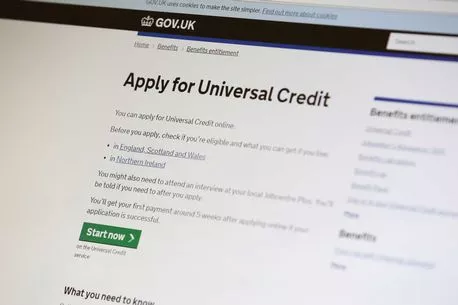If you’ve been tracking the DWP PIP Rules 2025, you know the buzz: how long do payments really last and who’s snagging the maximum payout? Benefits in the U.K. can feel about as confusing as U.S. tax season, so let’s strip out the legal jargon and break it down. By the end, you’ll know how PIP works, how much you can get, and what’s changing in the years ahead.

For a little context, PIP—Personal Independence Payment—is a U.K. disability benefit for folks whose health condition affects daily living or mobility. It’s run by the Department for Work and Pensions (DWP) and helps cover the costs of everyday independence. Think of it as the British cousin of Social Security Disability Insurance (SSDI) or Supplemental Security Income (SSI) here in the U.S.
DWP PIP Rules 2025
| Topic | Details |
|---|---|
| How long PIP payments last | 2–10 years fixed term; indefinite in some cases; 3 years if terminal illness applies. |
| Review process | 6–12 months before end date for longer awards; short-term awards require a new claim. |
| Maximum weekly payment (2025) | £187.45 if you qualify for both enhanced rates. |
| Processing time | Around 4 months for new claims, backdated to claim date. |
| Reforms status | Proposed stricter eligibility paused until Autumn 2026. |
| Transitional help | 13-week top-up if eligibility is lost under future reforms. |
| Official resource | UK Government PIP Guidance |
The DWP PIP Rules 2025 show that PIP remains a lifeline for millions across the U.K., with payments lasting from 2 years up to indefinite awards and a maximum payout of £187.45 a week. Reviews and reforms may shake things up, but current claimants are protected until 2026. Whether you’re applying, appealing, or just curious, knowing the rules helps you stay one step ahead.
A Quick History of PIP
PIP was launched back in 2013, replacing the old Disability Living Allowance (DLA). The idea was to better target support for people truly in need, with regular reviews instead of lifetime awards. But since then, it’s faced heavy criticism—mainly for stressful assessments and long wait times.
Fun fact: Between 2013 and 2023, over 5 million people applied for PIP, with about 2.9 million getting an award. That’s a huge chunk of folks relying on this support.
How Long Do PIP Payments Last in 2025?
Here’s the no-nonsense scoop:
- Fixed-term awards: Anywhere from less than 2 years up to 10 years.
- Indefinite awards: If your condition is permanent or you’ve reached State Pension age. Usually reviewed every 10 years.
- Terminal illness: If life expectancy is under 12 months, you’ll get the enhanced daily living rate for 3 years, paid weekly instead of monthly.
- Hospital or care stays: More than 28 days in hospital? Payments pause until you leave.
Pro Tip: Always read your decision letter carefully. That’s your roadmap for how long your payments will last and when reviews happen.
How Much Can You Get in 2025?
The big question: what’s the max payout?
- Daily Living Component:
- Standard: £73.90 / week
- Enhanced: £110.40 / week
- Mobility Component:
- Standard: £29.20 / week
- Enhanced: £77.05 / week
Total max = £187.45 a week. That’s around £750 every four weeks—enough to cover utilities, food, or even car payments.
PIP Rates 2025/2026
The amount of PIP you receive depends on the level of help you need. There are two parts, and each has a standard and enhanced rate. Here’s a quick look at the weekly payments:
| Component | Standard Rate (Weekly) | Enhanced Rate (Weekly) |
| Daily Living | £73.90 | £110.40 |
| Mobility | £29.20 | £77.05 |
- Note: To receive the maximum amount, you would be awarded the Enhanced rate for both Daily Living and Mobility.
Real-Life Story: Meet Sarah
Sarah, a 38-year-old mom with fibromyalgia, can only walk short distances and struggles with cooking. She scored enhanced daily living and standard mobility, landing £139.60 weekly. That helps cover groceries, adaptive tools, and taxi rides for medical appointments.
Stories like Sarah’s show how PIP isn’t just numbers—it’s real cash making daily life manageable.
Reviews: How DWP Checks In
Nobody likes reviews, but here’s how it works:
- Awards 2+ years: Reviewed 6–12 months before ending.
- Short awards: No review—just reapply.
- Indefinite awards: Checked every decade.
These reviews can work in your favor if your health has worsened. Always send updated medical reports.
Appeals & Challenges
Did DWP lowball your award? You’re not alone. Roughly 30% of appeals succeed. Here’s how to fight back:
- Mandatory Reconsideration: Ask DWP to review the decision.
- Appeal to a tribunal: Independent judges look at your case.
- Get help: Charities like Scope and Citizens Advice offer free support.
Think of it like contesting a parking ticket—you’ve got rights, so use them.
Reforms & Political Shake-Up
In mid-2025, the government hinted at tightening eligibility—like requiring more points per activity. Disability groups weren’t having it. After pushback, the reforms are now on hold until at least Autumn 2026.
Good news: if you already get PIP, you’re safe for now. If future rules cut you off, there’s a 13-week transitional payment to help.
How PIP Compares to U.S. SSDI
For my American readers:
- SSDI is based on work history (like insurance you pay into).
- PIP doesn’t care about income or work—it’s purely condition-based.
- Both can take months to process, and both get critiqued for red tape.
So, imagine SSDI and SSI had a British cousin—that’s PIP.
Budgeting Tips for PIP Recipients
Stretching that PIP check matters. Here’s how folks make it last:
- Use rail and bus passes for cheaper transport.
- Apply for Council Tax reduction.
- Use grants from charities for adaptive equipment.
- Check out food co-ops or community fridges for low-cost groceries.
Little hacks can turn that £750 every four weeks into way more real value.
Step-by-Step Guide: Claiming PIP in 2025

- Check eligibility (condition impacts daily life for 3+ months, expected to last 9+ months).
- Start claim: Call DWP or apply online at GOV.UK.
- Complete “How your disability affects you” form.
- Provide evidence: Doctor’s letters, therapist notes, care plans.
- Assessment: Phone, video, or face-to-face with a health professional.
- Decision letter: Wait ~4 months.
- Get paid: Backdated to claim date.
- Review: Respond promptly when forms arrive.
Tips & Common Mistakes to Avoid
When applying for or reviewing your PIP claim, be sure to:
Do: Be specific and detailed. Instead of saying “I have trouble getting dressed,” explain exactly what you struggle with, like “I can’t fasten buttons due to joint pain, and it takes me twice as long as it used to.”
Don’t: Focus on your medical diagnosis. The DWP assesses your ability to perform tasks, not your medical condition itself. Your form should be a diary of your daily struggles, not just a list of your diagnoses.
Do: Use a diary to track your bad days. Remember that an assessor needs to know what you’re like on “most days,” which means more than half the time. A diary helps you recall those details accurately.
Don’t: Understate your difficulties. It can feel awkward to talk about what you can’t do, but it’s crucial to be honest and open about the help you need.
FAQs
Q1: Can you work while getting PIP?
Yes, 100%. PIP is about your condition, not your job status.
Q2: Does savings or income affect PIP?
No. Unlike other benefits, PIP is tax-free and not means-tested.
Q3: What if my condition gets worse?
Contact DWP for a review—you might jump to a higher rate.
Q4: What if I’m denied PIP?
File a mandatory reconsideration, then appeal if needed.
Q5: Is PIP paid weekly or monthly?
Usually every 4 weeks, but weekly if terminal illness rules apply.












